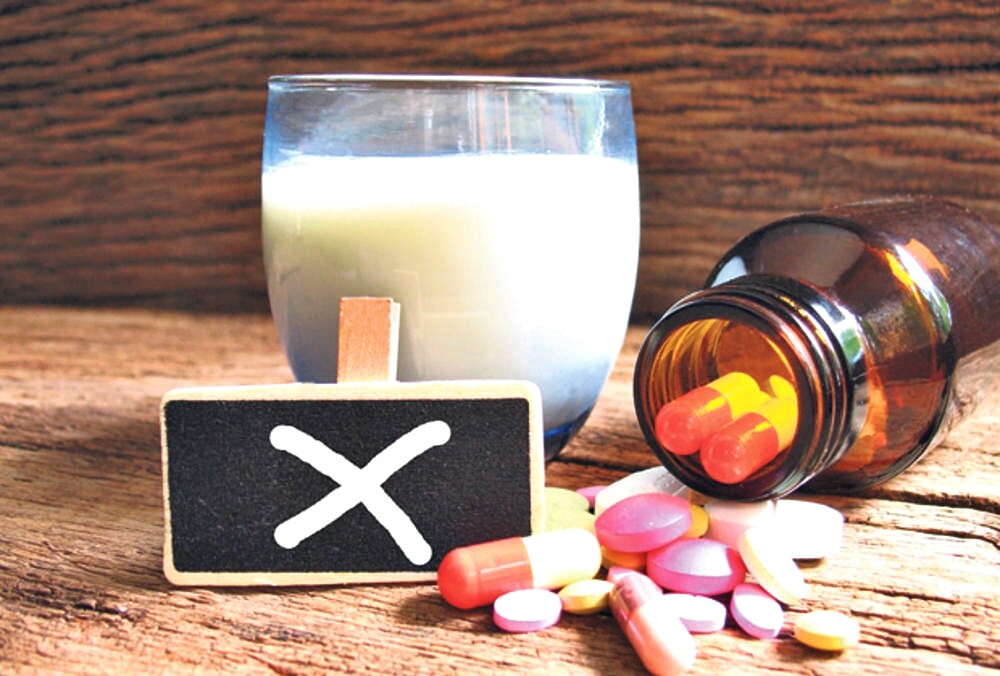There are a lot of myths surrounding the use of antibiotics. But one question keeps coming up: antibiotics and milk – are they compatible?
Antibiotics and milk: This must be taken into account
Let us first clarify the initial question: Are antibiotics compatible with milk? The answer is yes and no. Often you read and hear that you should keep your hands off milk and dairy products while taking antibiotics, otherwise they become ineffective. It is generally recommended that you take a large glass of tap water with each tablet. However, there is nothing wrong with milk for most antibiotics.
But with tetracyclines and gyrase inhibitors, it is indeed the case that dairy products render these substances ineffective. The background to this is that the calcium contained in milk combines with the active substance to form large and solid molecular spheres. These are so stable that they no longer pass through the intestinal wall and can be metabolised in the liver. The calcium-active substance balls are excreted without the active substance being able to exert its effect.
Therefore, with these antibiotics you should not take milk and dairy products for at least two hours before and after taking them. So that you know which antibiotic your prescribed antibiotic is, it is worth either asking your doctor or taking a look at the package insert.
How to recognize your antibiotic
Tetracyclines are highly effective drugs and are often prescribed for urinary tract infections such as cystitis or kidney inflammation, as well as for bronchitis or pneumonia. In some cases, the doctor may also prescribe tetracyclines for acne, gastrointestinal problems or eye infections. These include tetracyclines:
- Tetracyclin
- Doxycyclin
- Minocyclin
- Chlortetracyclin
- Oxytetracyclin
Gyrase inhibitors, also known today as quinolones, are spread over four generations:
- The first generation is prescribed for uncomplicated diseases (e.g. infection of the urinary tract)
- The second generation for somewhat more complicated infections (e.g. severe inflammation of the urinary tract)
- The third for serious diseases such as pneumonia
- The fourth generation has the broadest spectrum of activity and is prescribed when anaerobic bacteria are responsible for the infection
So if you have been prescribed an antibiotic for one of the diseases described, the drugs are usually tetracyclines or gyrase inhibitors.
Myths about drugs
Let’s take the opportunity to dispel some of the myths.
- Antibiotics help with influenza: Influenza and colds are viral infections for which antibiotics can do nothing, but only for infections caused by bacteria. A doctor would not even prescribe antibiotics in such cases. However, if you take antibiotics, you might experience other symptoms, such as diarrhoea.
- Antibiotics make the pill ineffective: the effect of the pill is definitely weakened by taking the antibiotic. The intestinal flora cannot absorb so many hormones due to the antibiotics, so protection is not guaranteed. Basically, there are often interactions with other drugs. This should be clarified with a doctor.
- If you feel well, you can stop antibiotics: You shouldn’t do that. Even if you feel fit as a fiddle, you should continue to take the antibiotics. They quickly and effectively combat bacteria and germs that make you sick. But it takes a while before these are completely killed off. If you stop taking the medication prematurely, surviving bacteria can cause a new infection.

